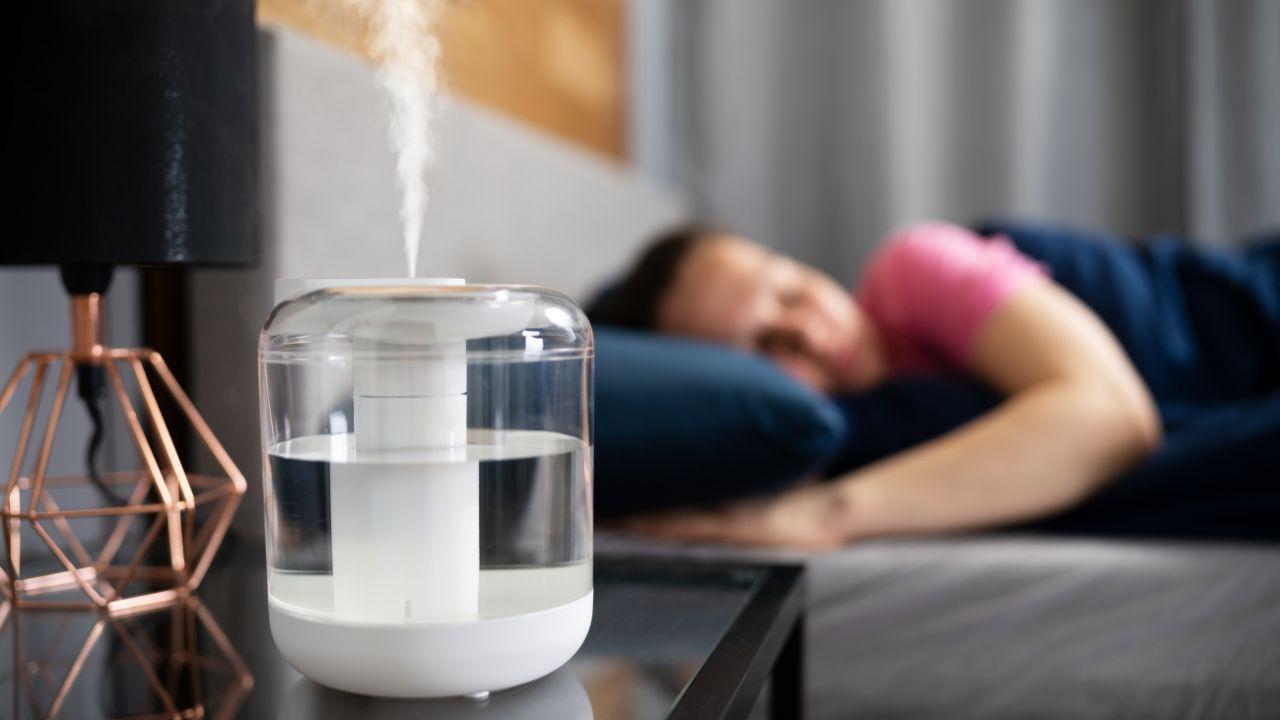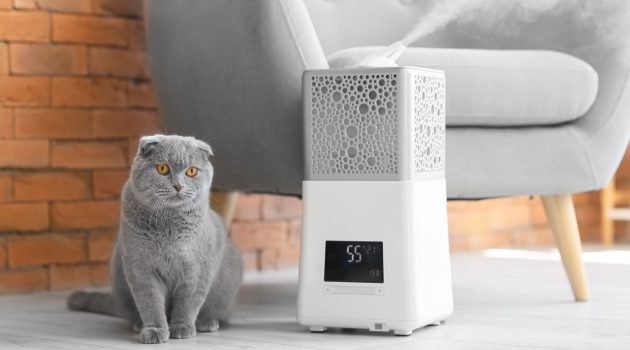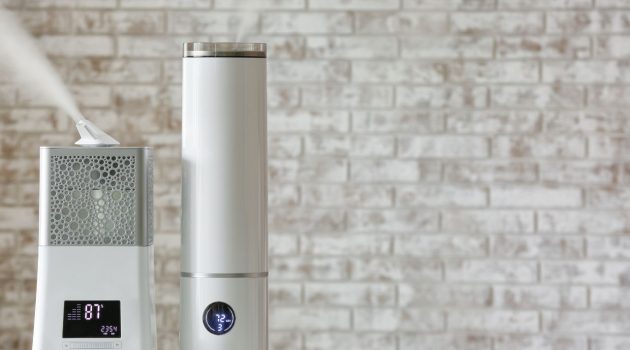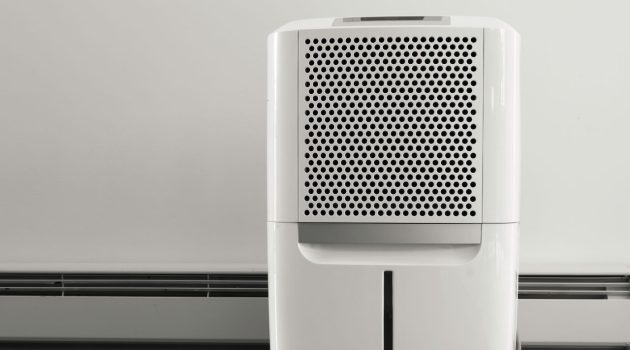When maintaining a comfortable and healthy atmosphere in your home, using a humidifier is a popular choice, especially during the dry winter months.
The type of water you use in your humidifier can play a significant role in the device’s performance and the air quality it helps to create.
Choosing the right water for your humidifier is essential to ensure it works efficiently and supports your respiratory health.
Various types of water are available, and not all are suitable for humidifiers.
Some water sources contain minerals, bacterial contaminants, or other impurities that can affect the performance of your humidifier and release unwanted substances into the air.
Understanding the differences between tap, distilled, and purified water can help you make informed decisions about the optimal water choice for your device.
1. Why Water Quality Matters
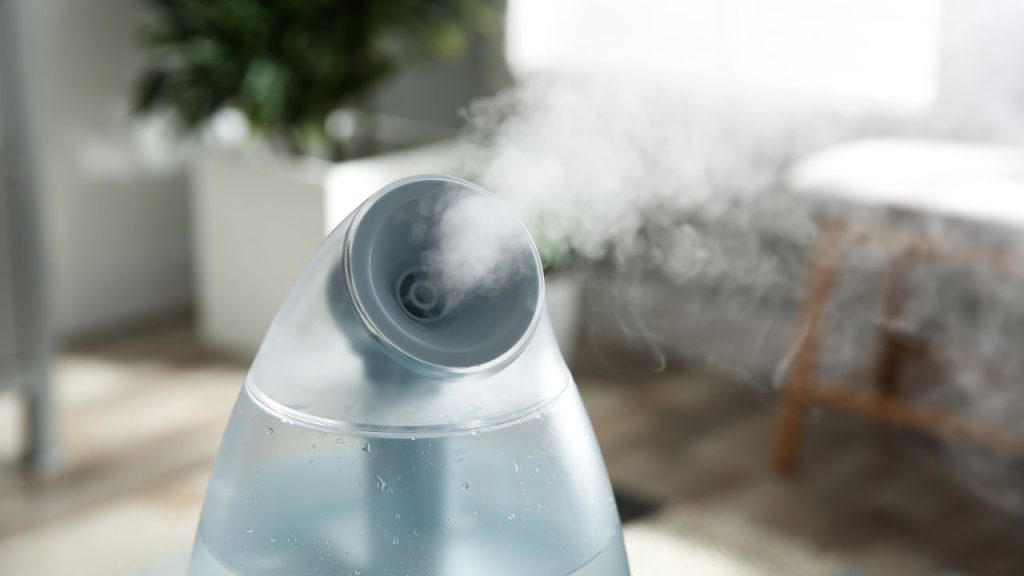
Water with fewer minerals and impurities is ideal for use in a humidifier.
This is because minerals present in water can lead to a buildup of mineral deposits within the device and adversely affect its performance.
A higher concentration of minerals can also release white dust into the air, which can trigger allergy symptoms and negatively impact your health.
Using water with fewer impurities reduces the risk of bacterial growth in your humidifier.
Keep in mind that bacteria, if present, can be dispersed into the air along with moisture when the humidifier is operating, possibly leading to respiratory issues or other health problems.
READ MORE: Best Humidifiers for Hard Water
2. Best Water Options for Humidifiers
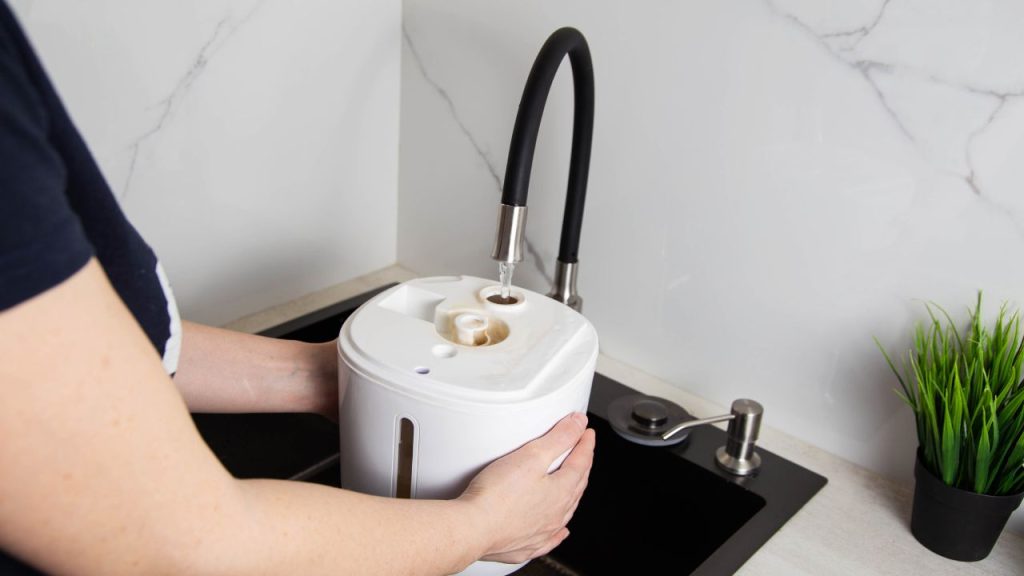
When choosing water for your humidifier, it’s essential to pick the right type of water to ensure the optimal performance of your device, maintain good air quality, and extend the unit’s lifespan.
Here are some of the best water options you can consider.
Distilled Water
Distilled water is the top choice for humidifiers because it contains the least amount of minerals and impurities.
Using distilled water reduces the risk of mineral buildup in your humidifier, prevents the release of white dust, and prolongs the device’s lifespan.
Demineralized Water
Similar to distilled water, demineralized water has undergone a process to remove most of its mineral content.
This makes it another excellent choice for your humidifier since it minimizes mineral deposits and white dust.
Purified Water
Purified water undergoes stringent filtration to remove contaminants and impurities.
Some of the purified water’s most effective filtration systems include ion exchange and reverse osmosis systems.
Using purified water in your humidifier will help maintain its efficiency and provide clean air to breathe in your home.
Filtered Water
If you have a home water filtration system, filtered water can also be suitable for your humidifier.
These systems effectively remove impurities from tap water, making it cleaner for your device.
Bottled Water
While not as ideal as distilled or demineralized water, bottled water may still be a decent choice for your humidifier, especially without other options.
However, paying attention to the mineral content of the bottled water you’re using is crucial, as some brands contain high levels of minerals.
Tap Water
It’s not recommended to use tap water in your humidifier, as it often contains high levels of minerals that can cause buildup and reduce the effectiveness of your device.
Furthermore, tap water may contain bacteria and other contaminants that can negatively affect air quality.
Boiled Water
Boiling tap water can help kill germs and remove some impurities, making it slightly better for use in a humidifier than unfiltered tap water.
However, it does not remove minerals, so the risk of mineral buildup still exists.
Spring Water
Like tap water, spring water is not ideal for your humidifier due to its high mineral content. The minerals may lead to buildup in your device, affecting its performance and efficiency.
Choosing the right water for your humidifier allows you to maintain good air quality, keep your device running smoothly, and extend its lifespan.
READ MORE: Humidifier Spitting Out Water? Quick Fixes and Tips
3. Dealing with Hard Water and Minerals
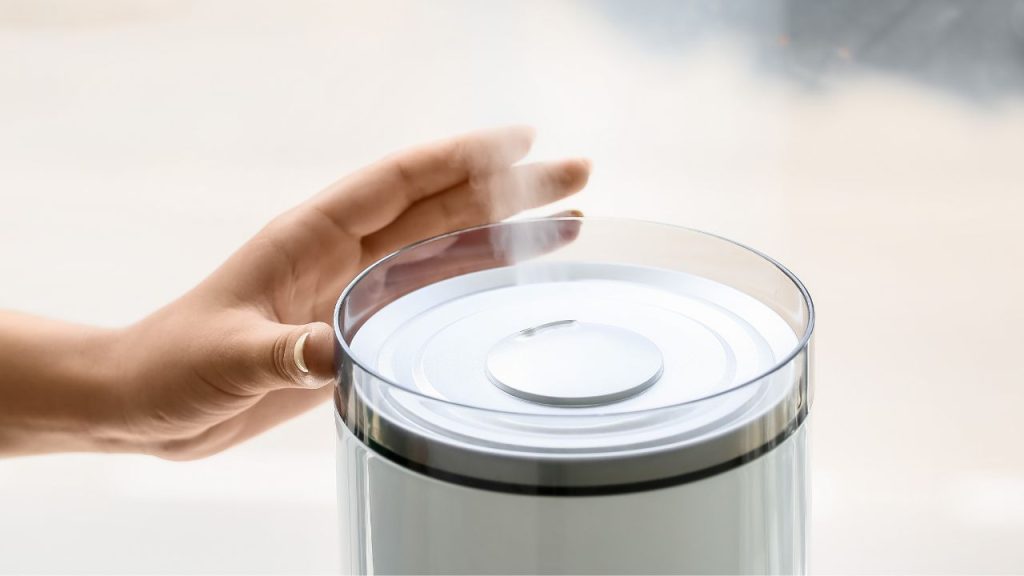
Hard water contains high levels of mineral content, including calcium and magnesium.
When using hard water in a humidifier, these minerals can create issues like scale, white dust, and mineral buildup.
Knowing how to handle these issues is essential to maintain your humidifier’s efficiency and avoiding potential health risks.
Consider using a demineralization cartridge in your humidifier.
This cartridge helps to remove minerals from the water before it enters the humidifier, reducing the risks of scale, limescale, and mineral buildup.
By prolonging the life of your humidifier and keeping it clean, you can ensure optimal performance and a healthier living environment.
Another option to prevent problems associated with hard water is to use a water filtration system.
Various types of water filters are available, ranging from whole-house systems to portable pitchers.
You can significantly reduce the risk of mineral-related issues by filtering out minerals before using the water in your humidifier.
READ MORE: Best Desk Humidifiers: Top Picks for Comfort
4. Cleaning and Maintenance of Humidifiers
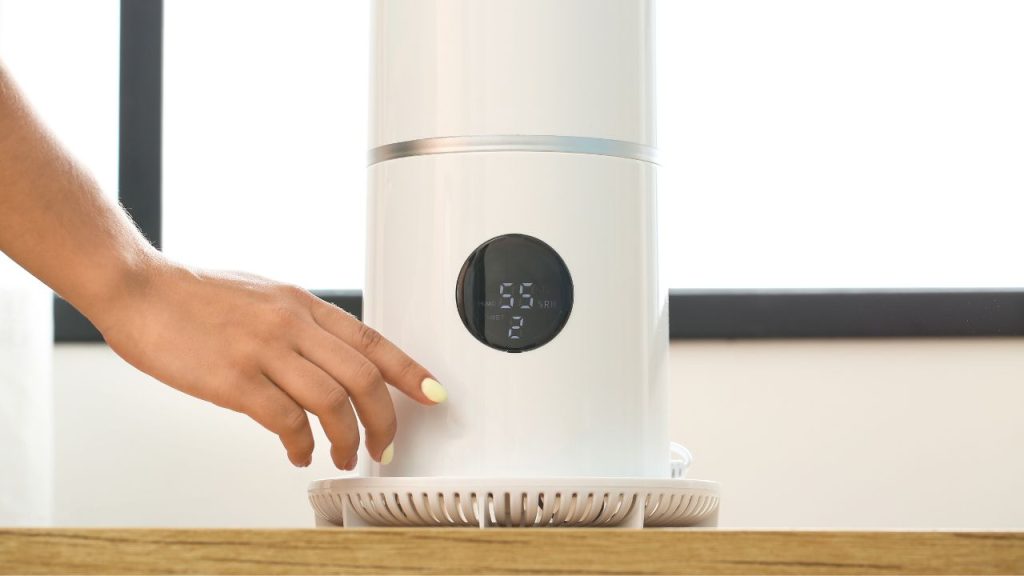
Keeping your humidifier clean is essential for maintaining efficiency and preventing mold and bacteria growth. Regular cleaning can also help reduce scale buildup. H
Here are some friendly tips to help you properly clean and keep your humidifier:
Always remember to unplug your humidifier before you start the cleaning process. This ensures your safety and prevents the risk of electric shock.
To remove scale buildup, cleaning the water tank and any mineral deposits regularly is important. Fill the base of your humidifier with a 1:1 mixture of water and white vinegar. Let it sit for an hour to help loosen any residue. The vinegar is a natural cleanser that will help disinfect and remove buildup. After an hour, you can use a soft brush, like a toothbrush or nylon dish brush, to scrub any remaining deposits gently.
You can clean your humidifier with a mild bleach solution to prevent mold and bacterial growth. Mix one tablespoon of liquid chlorine bleach with one gallon of water and fill the tank with this solution. Swish it around and let it sit for about 30 minutes. Then, rinse the tank thoroughly with clean water to ensure there’s no bleach residue left behind.
It’s essential to dry all parts of your humidifier before reassembling it. This will help reduce the chance of mold growth and bacterial growth. Make sure to clean your humidifier at least once a week during regular use, and store it in a cool and dry place when not in use.
Following these simple cleaning and maintenance tips, you can keep your humidifier in good condition and enjoy the benefits of clean, properly humidified air.
READ MORE: Pink Mold in Humidifier? Prevention and Removal
Frequently Asked Questions
Can I use boiled or distilled water in my humidifier?
Yes, you can use both boiled and distilled water in your humidifier. Boiling water effectively kills bacteria and other contaminants, making it a safer option for your humidifier. Distilled water is an ideal choice because it is free from minerals, bacteria, and other impurities that can accumulate and cause damage to the humidifier while also keeping the air in your home clean and healthy.
Which type of bottled water is suitable for humidifiers?
For humidifiers, it’s best to use distilled or demineralized bottled water. These types of water have reduced mineral content, preventing mineral buildup in your humidifier and reducing the chances of releasing excess minerals into the air.
Should I use hard or soft water in a humidifier?
Using soft water or water with low mineral content in a humidifier is better. Hard water contains minerals that can cause deposits to form in the humidifier, affecting its efficiency and possibly releasing minerals into the air, which may trigger health issues.
What are the alternatives to using distilled water in a humidifier?
If you don’t have access to distilled water, you can use demineralized water, boiled water, or filtered water as alternatives. These options have reduced impurities and are safer for humidifier use than regular tap water.
Is tap water safe for cool mist humidifiers?
Tap water may contain minerals and other impurities that can harm your cool mist humidifier or cause mineral buildup. While you can use tap water in a cool mist humidifier, it’s recommended to use distilled, demineralized, or filtered water for better performance and to prevent potential health issues from releasing mineral particles into the air.
Where can I purchase appropriate water for my humidifier?
You can find distilled, demineralized, and other suitable water types for your humidifier at most grocery stores and supercenters. Alternatively, you can purchase water purification systems or filters at home to create your purified water.
